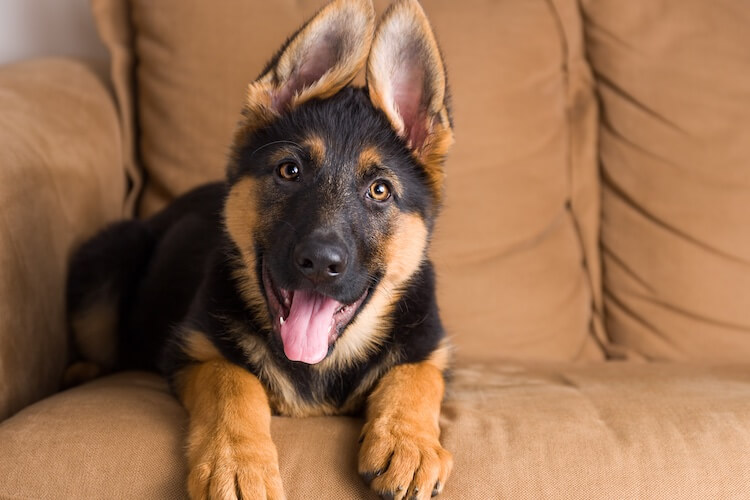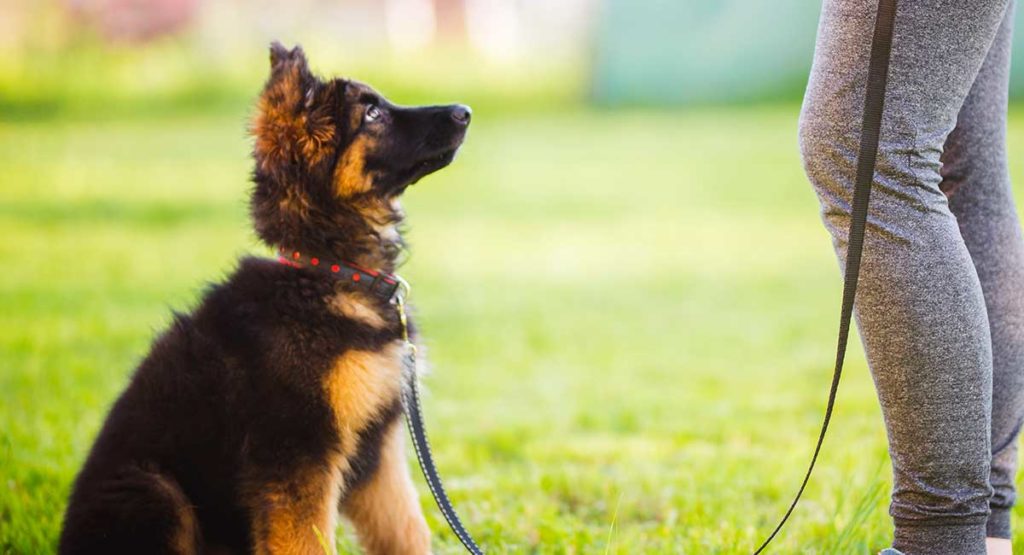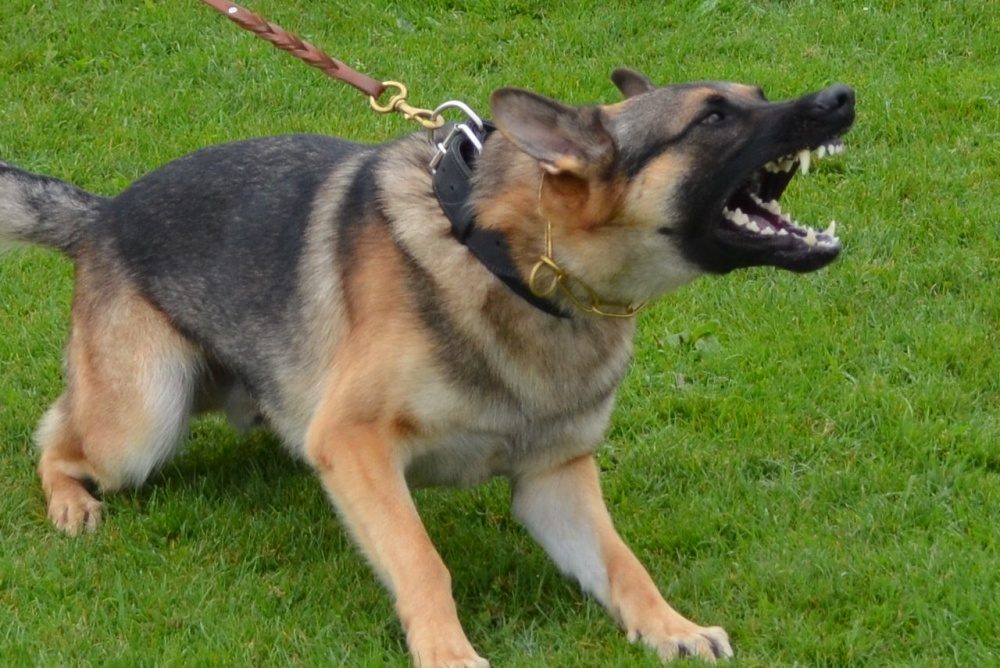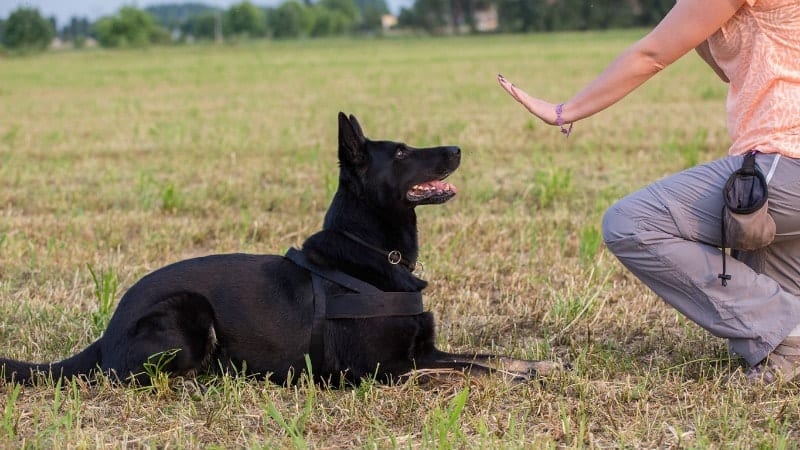German Shepherd Dog Training Secrets
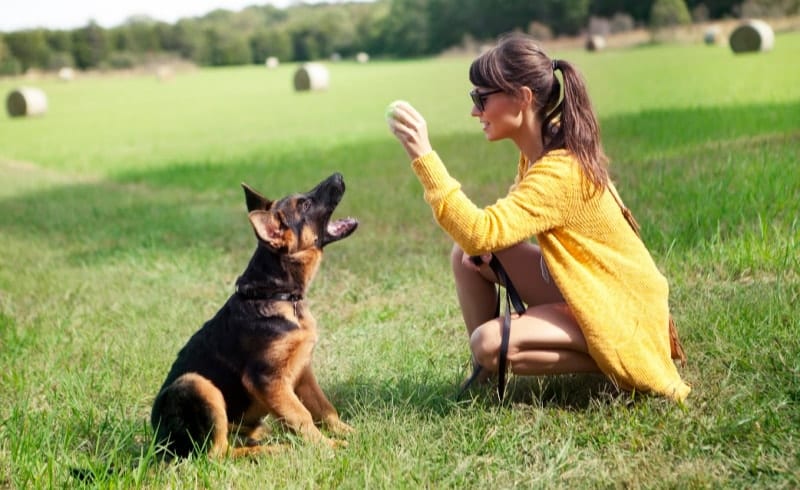
Now you are the owner of a German Shepherd. This is one of the most beautiful, friendly dogs there are. It is very popular with many people, and it makes a good watchdog. Still, they are different from other dogs, and they need specific German Shepherd dog training to allow them to fit in well with your family.
Large, strong, and athletic, these dogs need quite a bit of stimulation on a mental level. They also need a lot of exercises. Good German Shepherd dog training will probably mean you can get your dog to do almost anything you wish. German Shepherds succeed best when they face activities that challenge them. They are very ready to serve people and make people happy. Many police forces use them as service dogs. When they get called into action, they can’t be matched.
When German Shepherds are young, they can be rather rowdy. They might knock over children so it’s a good idea to discourage them from jumping up if they get excited. If you leave the dog home alone, it may damage your property. It can use its big teeth and claws to do the damage. Remember a German Shepherd doesn’t become fully grown until it’s around three years old. You have to be patient and consistent with his training. You want to expose the dog to lots of people and other dogs to socialize him. This will also prevent the dog from developing aggressive traits.
You might want to enroll the dog in a training class or at least get yourself a good guide that can take you through German Shepherd dog training step by step. You should start this at a young age. If you consider enrolling your dog in a club, you’ll find that many clubs allow dogs to join when they are only a few months old. Make sure to speak to Orlando Pest Control to rid your puppy of any pests before introducing him to other dogs. Give a call for the best Orlando Pest Control. This training class should be enjoyable for your dog. It will allow him to play and socialize, while it will also teach him what is allowable and what isn’t. This makes for some valuable incentive for your training.
Another thing you want to consider as part of the German Shepherd dog training is the fact that your German Shepherd will need to be groomed regularly. They shed a lot of hair. They molt about once every year. You have to be prepared to have dog hair all over the place, on your clothing, across your furniture, and even in your food! Get yourself a good vacuum cleaner.
You need your German Shepherd to respect you. It’s not a good idea to use punishment to make this happen. Give the dog a lot of love and a lot of obedience training. That is how you’ll earn respect. The dog has a great sense of bonding. He wants your attention and he’ll do whatever he has to to get it. He may not be affectionate, but it doesn’t mean he doesn’t love you. It’s just their nature to act sort of regal and noble. Sometimes they get goofy if no one is looking.
It takes some time for the German Shepherd to reach adulthood. You have to be prepared to give some firm discipline. They are active dogs, so you will have to provide a place for them to run. Let them explore their environment with their big, beautiful noses. You can even try to bring in another dog to let them get the right amount of exercise. You don’t want to tie the dog to the house or confine him too much.
Let your German Shepherd be with people since they thrive on companionship. They may pick one family member as their favorite. You can use this to your advantage when training them. It can be a means of rewarding them for good behavior. Your children may undo all your good work when you’re training a German Shepherd puppy. Children aren’t firm with puppies. You need to guide the children to show the dog how to behave well.
Your German Shepherd can be as proud and distinguished as he is meant to be. If you raise him well and ensure that you give him quality and specific German Shepherd dog training, he will make you a happy owner with many pleasant memories. You can’t have a better friend than a German Shepherd. You just need to get started on your training and make this dog everything you want him to be.
